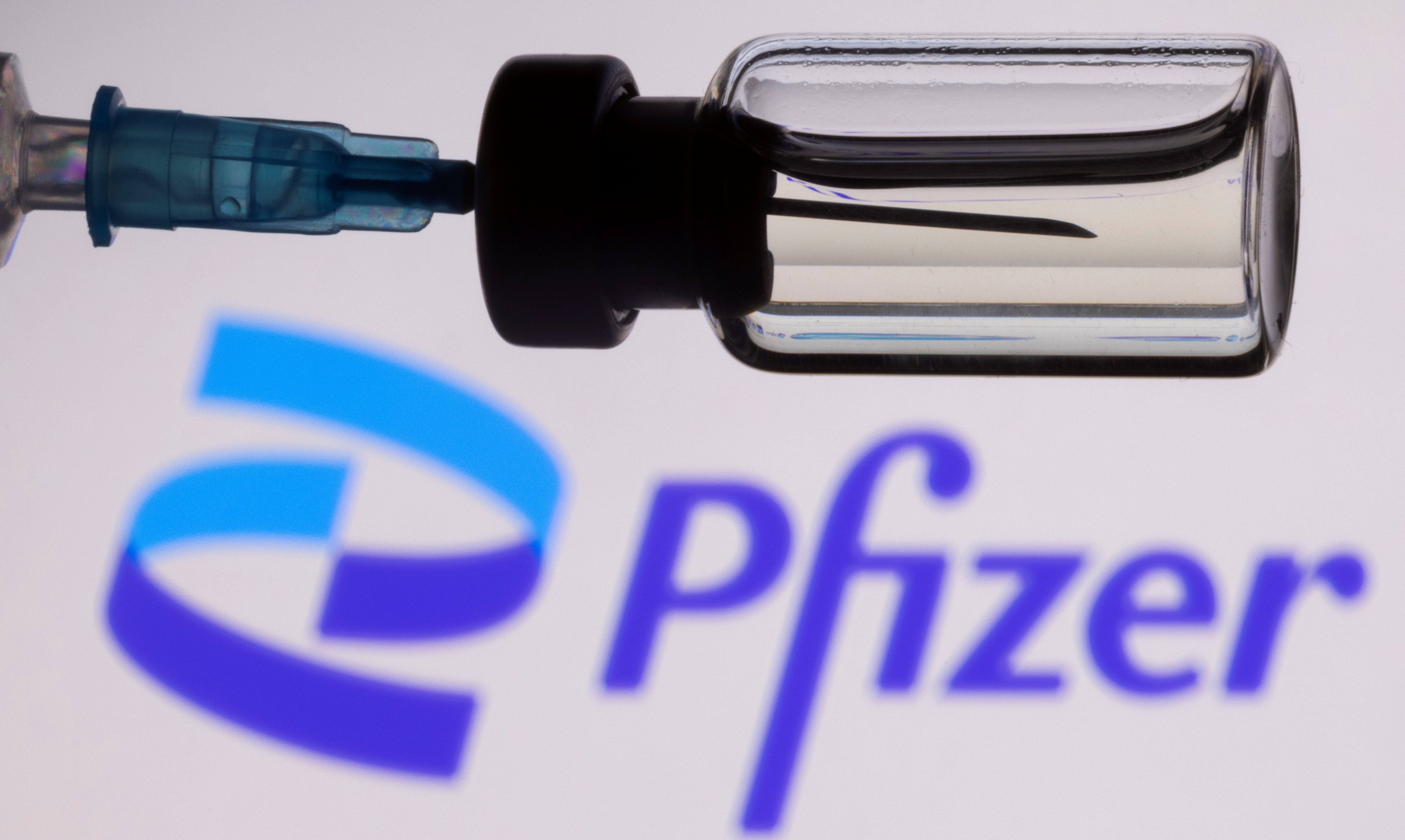Two doses of Pfizer vaccine protect against hospitalisation from omicron surge, study shows
A study found that two doses of Pfizer’s Covid-19 vaccine offered 70 per cent protection against hospitalisation and 33 per cent protection against infection during South Africa’s latest surge in infections

Your support helps us to tell the story
From reproductive rights to climate change to Big Tech, The Independent is on the ground when the story is developing. Whether it's investigating the financials of Elon Musk's pro-Trump PAC or producing our latest documentary, 'The A Word', which shines a light on the American women fighting for reproductive rights, we know how important it is to parse out the facts from the messaging.
At such a critical moment in US history, we need reporters on the ground. Your donation allows us to keep sending journalists to speak to both sides of the story.
The Independent is trusted by Americans across the entire political spectrum. And unlike many other quality news outlets, we choose not to lock Americans out of our reporting and analysis with paywalls. We believe quality journalism should be available to everyone, paid for by those who can afford it.
Your support makes all the difference.Two doses of the Pfizer-BioNTech vaccine provided 70 per cent protection against hospitalisation from Covid-19 in recent weeks in South Africa, a real-world study has revealed.
The study was conducted by Discovery Health, South Africa’s largest private health insurance administrator, and was based on some 211,000 positive Covid-19 test results dated from 15 November through 7 December.
At least 78,000 cases included in the study were attributed to the omicron variant, suggesting that the Pfizer-BioNTech jab offers protection against hospitalisation and severe illness from the new variant of concern.
However, as these were not confirmed cases, the study was unable to draw definitive conclusions about the impact of the Pfizer-BioNTech vaccine on the variant and warned that all findings should be considered preliminary.
During the study period, analysis conducted by Discovery Health’s clinical research and actuarial teams, in collaboration with South Africa’s Medical Research Council (SAMRC), determined that two doses of the Pfizer-BioNTech jab offered 70 per cent protection against hospitalisation and 33 per cent protection against infection.
This represents a drop from the 90 per cent protection against hospitalisation and 80 per cent protection against severe illness witnessed during South Africa’s outbreak of the Delta variant.
Despite this, Glenda Gray, SAMRC president, said that it was important that the Pfizer-BioNTech jab seemed to be offering strong protection against severe disease and hospitalisation.
“We are extremely encouraged by the results,” she said in a statement.
The study also found that two doses of the Pfizer-BioNTech vaccine maintained levels of protection across adults aged 18 to 79 years of age, with slightly lower levels of protection found amongst the elderly.
It also determined there was a higher risk of reinfection during the fourth wave when compared to previous waves but found that the risk of hospitalisation among adults who contracted the virus was 29 per cent lower than during the country’s first wave.
Among children, although there is a very low absolute incidence of hospitalisation, the study found that during this wave of infections children had a 20 per cent higher risk of hospital admissions with complications during this wave when compared to the first wave of the virus.
Join our commenting forum
Join thought-provoking conversations, follow other Independent readers and see their replies
Comments